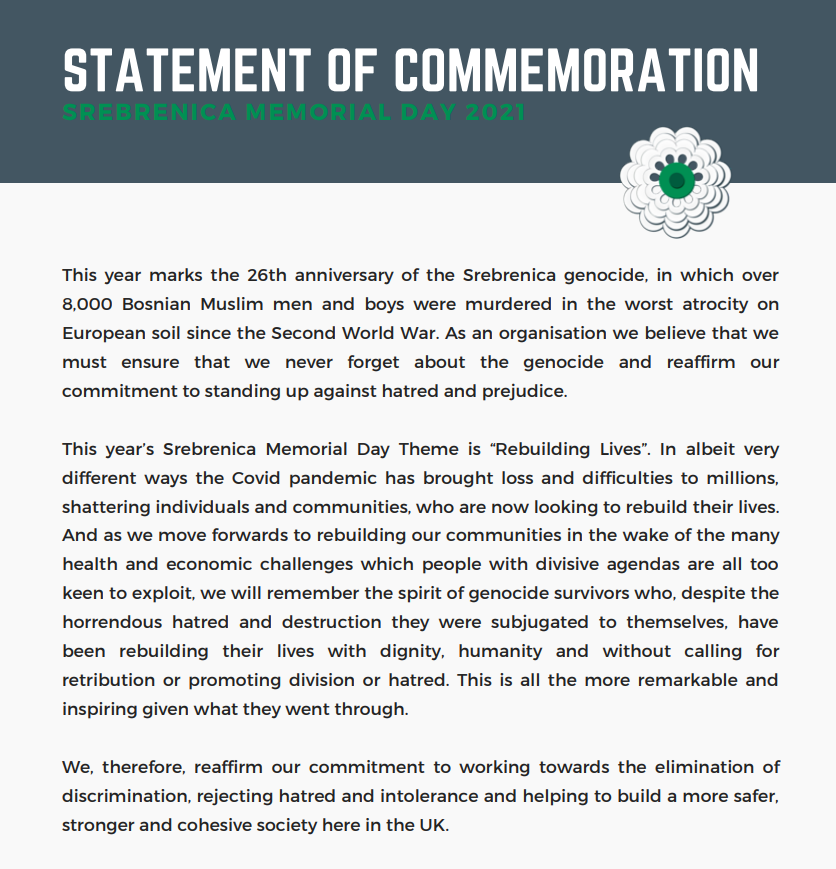Churches and other groups across the diocese are being invited to stand against hatred and intolerance by taking part in Srebrenica Memorial Week from 4-11 July.
On 11 July 1995, armed units under the control of Ratko Mladic (now a convicted war criminal) overran and captured the town of Srebrenica in Eastern Bosnia which had been declared a UN Safe Area. In the following days, more than 8,000 Bosnian Muslim men and boys were systematically murdered and buried in mass graves.
Srebrenica Memorial Week marks the genocide and urges people to stand against hate and create welcoming communities for all. Over 1,700 events and activities took place to mark the week in 2020.
UK charity Remembering Srebrenica is asking churches to honour Srebrenica Memorial Day Sunday on 11 July this year in services on the day itself, or on the previous Sunday 4 July.
The Bishop of Lichfield, the Rt Revd Dr Michael Ipgrave, said: “The terrible catalogue of events at Srebrenica – the worst atrocity on European soil since the Holocaust – is a stark reminder of the consequences of not standing up to hate. We are called to be people of hope who refuse to victimise or push others to the margins, offering safety and welcome in the name of a loving God. I encourage churches and others to use these resources as we play our part in building stronger communities across our diocese.”
A resource pack, including stories, pledges and a prayer written by the Archdeacon of Walsall , the Ven Julian Francis, is available for churches, who are also encouraged to adopt and post the Statement Of Commemoration below and light a candle in remembrance of genocide victims. Churches are also encouraged to connect with Muslim communities and other local faith groups to organise inter faith events with inter faith resources also available.
Julian, who visited Bosnia with Remembering Srebrenica in 2016, said: “In Christian faith, we remember in order to be transformed. To remember the suffering of so many in the genocide of 1995, and it’s continuing legacy into the present, is a very important gesture of solidarity with Bosnian and other Muslims in the region, and an opportunity to recommit ourselves to tackling hatred, overcoming differences and building bridges with all our neighbours.”
